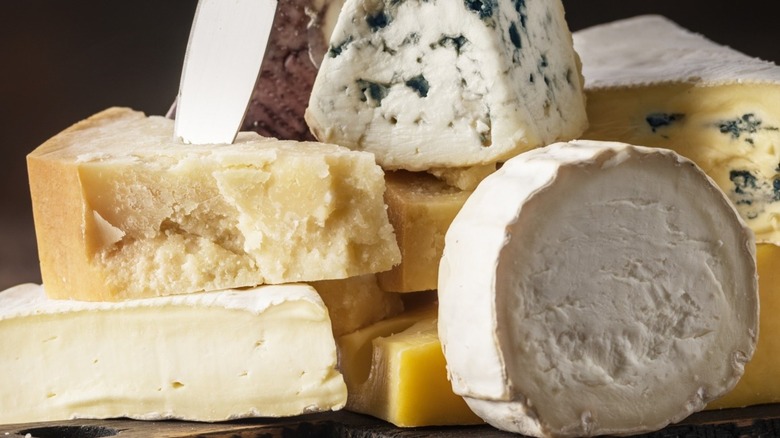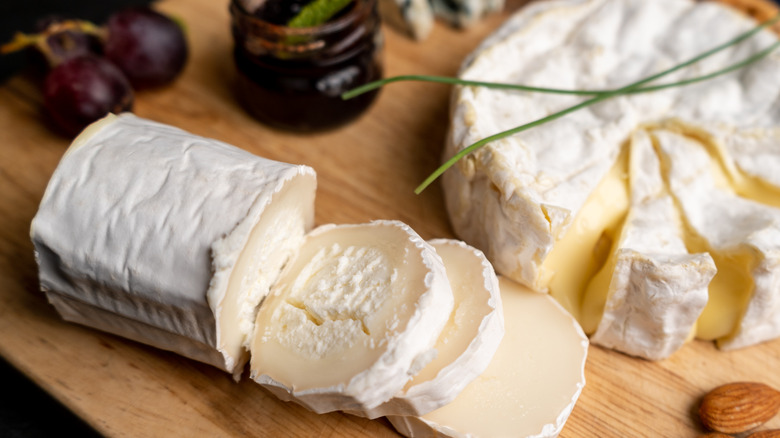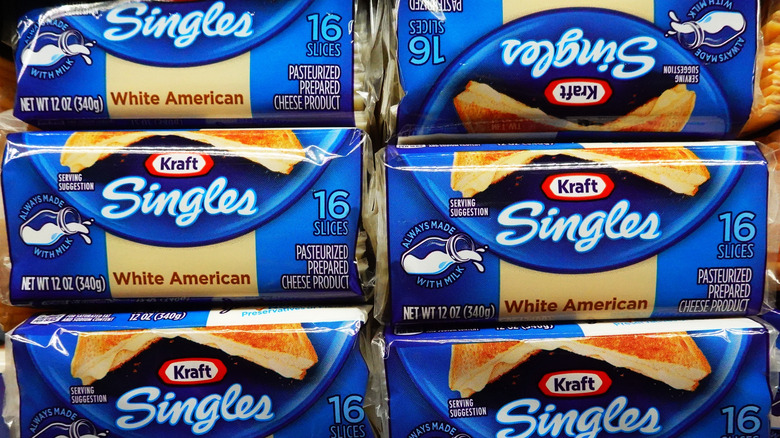Cheese Is More Nutritious Than You Might Have Thought
It's easy to think of cheese as an indulgence or a special treat. After all, something that tastes so divine and satisfying must be lacking in nutrition, right? Not at all. In fact, cheese is more nutritious than you might have thought. From cheddar to swiss, gouda, chevre, brie, goat, and dozens more mouth-watering types of cheese, nutrition is found in every bite.
According to Healthline, cheese can be a valuable way to stack up important nutrients in your diet. Regardless of whether you take a daily vitamin supplement, including cheese in your diet can help to provide beneficial calcium and protein without relying on fatty meats or processed foods. Consuming cheese also gives you a natural infusion of vitamins B12 and A, along with riboflavin, zinc, and phosphorus.
And that's not all. Depending on where your palette gravitates on the cheese wheel, there are other potential health benefits from consuming cheese.
All cheese is not equal when it comes to nutrition
Whole milk, low-fat, grass-fed, aged, fresh — the dairy parade is endless. So, how do you determine which cheese is more nutritious than others? A lot comes down to your own particular tastebuds and health risks. For example, if you don't love the distinct flavor of brie, it won't matter much that it contains a healthy fat called conjugated linoleic acid (CLA) that can be good for your heart and may help prevent obesity, per Healthline.
The NIH National Library of Medicine cites a study from Clinical Interventions in Aging that found fresh cheeses, such as ricotta, can lower cholesterol and aid in balance and muscle-mass issues that occur with aging. Goat cheese, in particular, harbors health-boosting probiotics for gut health, calcium to prevent osteoporosis, and copper for pumping up red blood cells to carry oxygen throughout your body, per WebMD.
U.S. Dairy explains that dairy nutrients from cow's milk, including those in cheese, vary according to the diet of the animals. Organic or grass-fed cheeses typically contain more omega-3 fatty acids, which may have health benefits for the brain, eyes, and heart. Grass-fed cheese also contains more CLA, according to the Journal of Dairy Science.
Behind the label of 'cheese products'
Before stocking your fridge with those nostalgic processed orange squares you recognize from lunchbox sandwiches, be aware that all cheese is not equal. What we know as "American cheese" is made with a percentage of genuine cheese, however, it also contains other things, most of which are fillers, preservatives, or texture enhancers. A closer inspection of the nutrition label reveals the description "pasteurized process cheese food," which Taste of Home explains as having less than the FDA required 51% milk curds. Velveeta, named for its velvet-like smoothness, is similar, relying on emulsifiers and processing for that supremely dippable spread.
Other yellow, cheesy-looking food items may contain no dairy; look for disclaimer-type labels such as "cheese product." Vegan versions, often known as non-dairy cheeses, are a more natural option, but Healthline cites a study that recommends opting for cashew or tofu versions rather than processed coconut-based ones that are high on flavor but low in nutrition.


